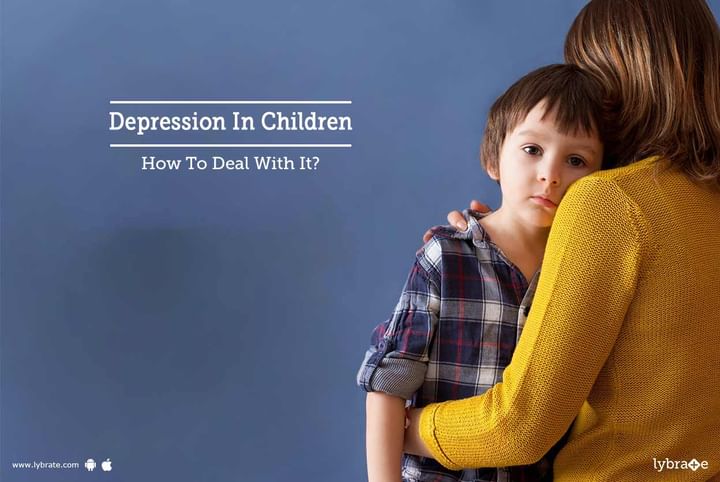Depression In Children - How To Deal With It?
In today’s times, depression has spread within the society like an epidemic. People with depression wake up feeling low, spend their day drowning in anxiety and end the day without any hopes for the future. Although the symptoms may be different, children are not safe from the clutches of depression either. It is more difficult for them to express their anxiety and helplessness due to their lack of understanding of the concept of depression.
Five percent of the children suffer from depression worldwide. If not taken care of, the depression can spiral out of control and potentially ruin the prospects of the child as adults. If you start noticing your child slowly retreating into their own world or unable to control their emotions, you must evaluate if your child is suffering from depression and take steps to help them.
Signs of depression in children:
The role of parents in helping a child overcome depression is of primary importance. While occasional bouts of feeling low and cranky is a part of growing up, extended periods of certain signs are cause for concern. They include:
• Being aggressive, sad or unhappy most of the time
• Saying negative things about themselves
• Lack of energy and interest in games
• Anxiety, irritability, and fear of social situations
• Nightmares
• Disrupted dietary patterns
• Self-harming tendencies
Coping with depression
• It is important to notice unnatural behaviour in children and talking to them about it in a patient, non-judgemental and understanding manner. If the child is unwilling to talk, respect their space and broach the subject later.
• Depression doesn’t indicate the parents are failing in their roles. The cause of depression can be anything from genetic vulnerability to physical health and the immediate environment. The best course of action is addressing the cause and helping the child overcome depression.
• Often it is best to seek the professional help of a therapist or counsellor the child trusts. Forms of therapy including Cognitive Behaviour Therapy and Interpersonal Psychotherapy can help the child through play therapy, family therapy, and peer therapy.
• Giving the child a conducive atmosphere at home and in school is crucial. You might want to explore the possibilities of bullies or other factors in school, especially if your child is making excuses to not attend school and has deteriorating grades.
• Invest more time in their daily activities and engage them in activities of their choice to relieve their stress and channel their anxiety better.
The average age of appearance of depression in a child is progressively falling lower. In the face of such times, the child needs the parents more than ever to feel safe. It is easy for parents to deny depression in their children as the other alternative is heart-breaking. However, early diagnosis and intervention help the child to combat depression more effectively. A combination of medication, therapy, and support of the family is the best way of helping a child deal with depression and become a happier and successful adult.



+1.svg)
